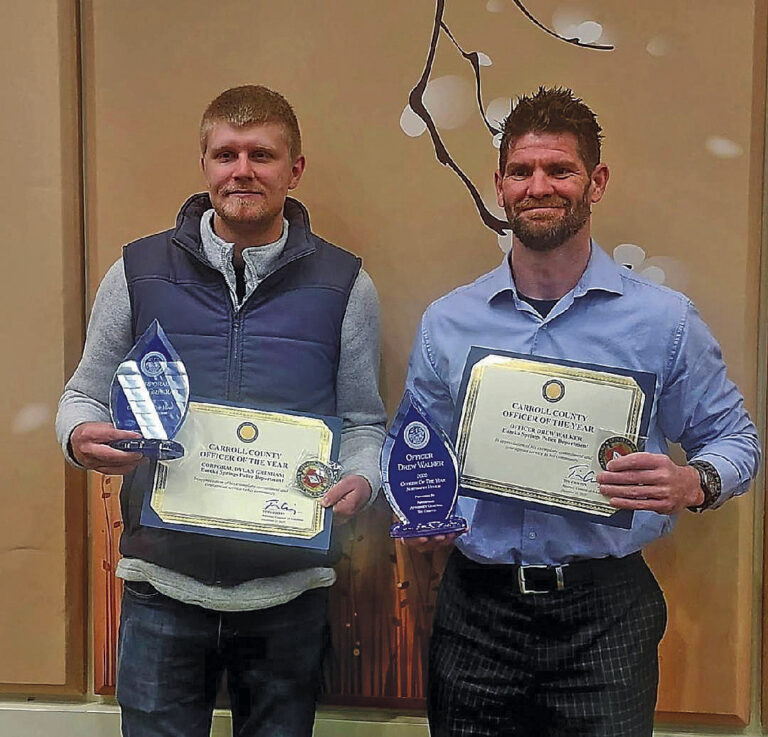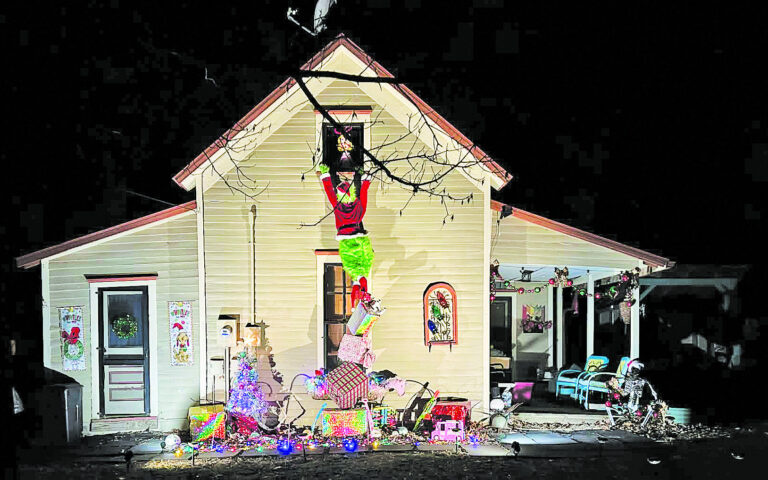The Holiday Island City Council brainstormed for nearly three hours during a workshop held Wednesday, Feb. 7, outlining ideas to put in place an animal control ordinance.
Council members used an ordinance from Berryville as a guide, going line-throughline in discussions with Cole Wakefield, executive director of Good Shepherd Humane Society in Eureka Springs, on what is appropriate in Holiday Island.
Council members discussed many types of animals but the main discussion was regarding dogs and whether permits would be part of the ordinance, possible fees for the permits, fines if rules were violated, and definitions of such terms as an abandoned dog, what is considered humane and considering how a nuisance animal would be determined.
The role of a future animal control officer was also debated.
“I took most of the content from Berryville’s ordinance, added some things and deleted some things that I didn’t think we needed to get into, such as circus animals and stuff like that,” Holiday Island Mayor Dan Kees told the council. “Some city ordinances are pages and pages long because they get into every conceivable kind of situation.
“I don’t think we want an ordinance that onerous, that causes people to have to do things that really don’t benefit the community.”
Some things in the Berryville ordinance wouldn’t necessarily be enforceable in Holiday Island, the mayor said.
“I don’t want something in this ordinance that we can’t enforce,” Kees said.
Dog complaints are common and discussions included dogs running loose around the city, dogs that are not taken care of properly and making sure threatening dogs are properly controlled.
“In my three-plus years of answering the phone for the city, we get more calls about dogs than probably any other kind of complaint,” Kees said. “… It’s probably the number one thing that people call code enforcement about. I think in three years we have had zero calls about cats. … Obviously, we’ve had inquiries about chickens and other kinds of wild livestock like goats and horses, but we’ve not had any complaints about any of that stuff, just inquiries.”
One of the topics debated was whether the city needed a leash law.
“I don’t think that’s enforceable,” Kees told the council. “… People that find dog poop in their backyard want a leash law, but it’s just not enforceable. We let our dog out in the backyard. We go out with it and we play ball and stuff like that. He’s not causing a nuisance. He’s not on a leash. We throw the ball and the neighbors don’t mind if we throw it in their yard. He goes and gets it and runs back. If nobody is playing golf, we’ll throw the ball out on the golf course and he’ll run out there and get it.
“If we put a leash law on here I would be violating it multiple times a day when we
What defines an owner having physical control of a dog was also discussed with the consensus agreeing that the definition should likely apply to “potentially dangerous animals,” but determining what animals should fall under that category was debatable.
“Well, you can’t do anything with this without an animal control officer,” Kees said. “The animal control officer has to fit someplace within the organization of the city. We can either create an animal control department or we have a division within code enforcement called animal
Wakefield shared his opinion to the council on topics such a requiring a dog to be licensed and whether to charge a fee.
“In a town around this size your compliance with licensing is going to be like 5 percent,” Wakefield said. “People aren’t going to get their license until they get a visit from the animal control officer because their dogs are running at large.”
The key, Wakefield told council members, is a way to keep a log of “who owns what dog or cat.”
“Instead of a fee, you have a free license that just basically encourages people to identify … So, it makes it easier to return the animal home if they do go at large,” Wakefield said. “There are hundreds of dogs that live in Eureka Springs and maybe a handful of licenses get issued every year.”
Wakefield said Good Shepherd would work with Holiday Island and provide things such as microchip events and tag engraving with the contact information for the owners of the pets.
The council agreed to review a new draft of the ordinance and discuss it in a future workshop.



